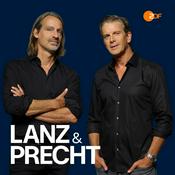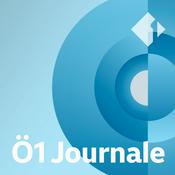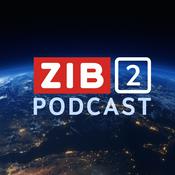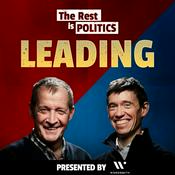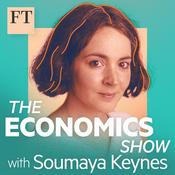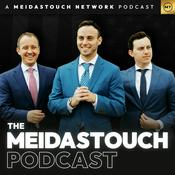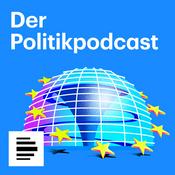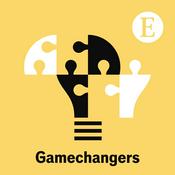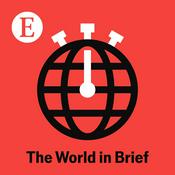1867 Episoden
- The detainment of King Charles’s brother is almost without precedent in Britain’s long royal history. He denies wrongdoing, but damage to “The Firm” is already assured. Saudi Arabia and the United Arab Emirates have fallen into a very public spat that may have grave implications far beyond the region. And our obituaries editor reflects on the life of Jesse Jackson.
Guests and host:
Sonny Loughran, Britain writer
Gregg Carlstrom, Middle East correspondent
Ann Wroe, Obituaries editor
Jason Palmer, co-host of “The Intelligence”
Topics covered:
Andrew Mountbatten-Windsor, Britain’s royal family, Jeffrey Epstein
Saudi Arabia, United Arab Emirates, diplomacy
Jesse Jackson
Get a world of insights by subscribing to Economist Podcasts+. For more information about how to access Economist Podcasts+, please visit our FAQs page or watch our video explaining how to link your account.
Hosted on Acast. See acast.com/privacy for more information. - Yoon Suk Yeol, South Korea’s ex-president, has been handed a life sentence for insurrection. That is by no means the end of the story of division in the country. Nervous AI-watchers fret about which workers might be replaced; our analysis suggests white-collar workers can breathe easy. And the memoir of Gisèle Pelicot, a rape survivor turned global symbol of strength.
Guests and hosts:
Noah Sneider, East Asia bureau chief
Alex Domash, economics correspondent
Alexandra Suich Bass, Culture editor
Rosie Blau, co-host of “The Intelligence”
Jason Palmer, co-host of “The Intelligence”
Topics covered:
South Korea, Yoon Suk Yeol
AI, white-collar jobs
Gisèle Pelicot, memoir
Get a world of insights by subscribing to Economist Podcasts+. For more information about how to access Economist Podcasts+, please visit our FAQs page or watch our video explaining how to link your account.
Hosted on Acast. See acast.com/privacy for more information. - Income inequality abounds and today’s rich are staggeringly rich, implying that tax regimes are giving the wealthy more and more of a pass. Our dig into the numbers suggests the opposite. We ask why so many of the world’s international mercenaries hail from Colombia. And despite the signs, Spanish may be reaching its peak in America.
Guests and hosts:
Callum Williams, senior economics writer
Carla Subirana, news editor
Lane Greene, senior digital editor
Rosie Blau, co-host of “The Intelligence”
Jason Palmer, co-host of “The Intelligence”
Topics covered:
Taxation, welfare state, inequality
Colombia, international mercenaries
Spanish
Get a world of insights by subscribing to Economist Podcasts+. For more information about how to access Economist Podcasts+, please visit our FAQs page or watch our video explaining how to link your account.
Hosted on Acast. See acast.com/privacy for more information. - Many scientists are considering the notion of actively cooling the region that is warming fastest. We examine the merits and the risks—both environmental and geopolitical—of messing with the polar climate. We ask why the kind of gig economy that has struggled in many markets is booming in India. And an unsettling peek into the first social network for AI agents.
Guests and hosts:
Oliver Morton, senior editor
Catherine Brahic, environment editor
Kira Huju, Asia correspondent
Alex Hern, AI writer
Rosie Blau, co-host of “The Intelligence”
Jason Palmer, co-host of “The Intelligence”
Topics covered:
The Arctic, climate change, geoengineering
India, gig economy
Agentic AI, social networking, Moltbook
Get a world of insights by subscribing to Economist Podcasts+. For more information about how to access Economist Podcasts+, please visit our FAQs page or watch our video explaining how to link your account.
Hosted on Acast. See acast.com/privacy for more information. - Our data journalists trawled through the vast email archive of Jeffrey Epstein, a dead sex offender. It is a revealing look at how and with whom he communicated. As interest grows in banning young people’s use of social media, we argue there are better ways to mitigate harms. And a blindfolded introduction to “blouge”, a new, more climate-resilient wine variety.
Guests and host:
Rosie Blau, host of “The Intelligence”
Dan Rosenheck, data editor
Tom Wainwright, media editor
Tom Standage, deputy editor of The Economist
Topics covered:
The Epstein files
Social-media bans
“Blouge” wine
Get a world of insights by subscribing to Economist Podcasts+. For more information about how to access Economist Podcasts+, please visit our FAQs page or watch our video explaining how to link your account.
Hosted on Acast. See acast.com/privacy for more information.
Weitere Nachrichten Podcasts
Trending Nachrichten Podcasts
Über The Intelligence from The Economist
Join Jason Palmer and Rosie Blau for noise-cancelling news and analysis from The Economist's global network of correspondents. Every weekday this award-winning podcast picks three stories shaping your world—the big shifts in politics, business and culture, plus things you never knew you needed to know. On Saturdays, download The Weekend Intelligence to dive deep into a single story, vividly told. If you’re already a subscriber to The Economist, you’ll have full access to all our shows as part of your subscription.For more information about Economist Podcasts+, including how to get access, please visit our FAQs page at https://myaccount.economist.com/s/article/What-is-Economist-Podcasts
Hosted on Acast. See acast.com/privacy for more information.
Podcast-WebsiteHöre The Intelligence from The Economist, Scheuba fragt nach und viele andere Podcasts aus aller Welt mit der radio.at-App

Hol dir die kostenlose radio.at App
- Sender und Podcasts favorisieren
- Streamen via Wifi oder Bluetooth
- Unterstützt Carplay & Android Auto
- viele weitere App Funktionen
Hol dir die kostenlose radio.at App
- Sender und Podcasts favorisieren
- Streamen via Wifi oder Bluetooth
- Unterstützt Carplay & Android Auto
- viele weitere App Funktionen


The Intelligence from The Economist
Code scannen,
App laden,
loshören.
App laden,
loshören.



